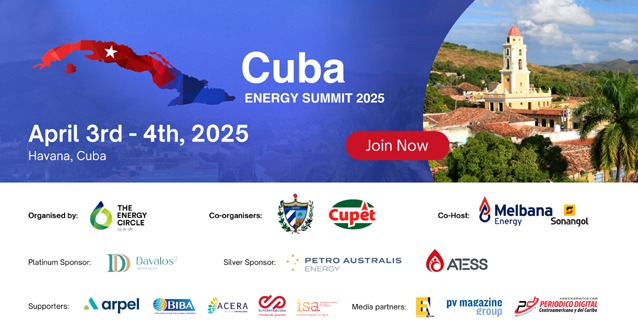
By Paul Krugman
In yesterday’s column I highlighted Germany’s infuriating unwillingness to wean itself from Russian gas, something that would be costly but not devastating to the nation’s economy. Part of my point was the hypocrisy: Germany was willing to demand almost inconceivable pain from southern European countries that, the Germans claimed, had borrowed irresponsibly — but is unwilling to accept far smaller penalties for its own feckless policy of relying on Russian energy, despite decades of warnings about the risk this policy created.
The other part of my point, however, was the foolishness of German politicians in attacking economists — including German economists — who say that the costs of a gas embargo would be tolerable, and believing the dire claims of industrialists instead. As I suggested, there’s a strong parallel here with the history of environmental protection. Industry always claims that proposed regulations will have a devastating economic impact. These predictions have never, to my knowledge, been remotely right. So the lesson should be clear: Never trust policy advice from big businesses that are talking their own book.
In today’s newsletter I want to expand on that point, first with a discussion of the history of America’s acid rain policy, then with some broader considerations.
Background: In 1990, more than half of America’s electricity was generated by coal-burning power plants (a number that was down to 19 percent as of 2020). These plants released sulfur dioxide, which combined with atmospheric water to produce sulfuric acid — something you really don’t want raining down on your farms, forests and people. So the 1990 amendment to the Clean Air Act introduced a system to reduce, though not eliminate, acid rain: Power plants were allocated rights to emit limited amounts of S02, but also allowed to sell emission rights they weren’t using to other plants that were having a harder time cutting their sulfur emissions.
ADVERTISEMENTContinue reading the main story
This cap and trade system greatly reduced the damage from acid rain. Here’s a map of pollution before the new system went into effect:

And here’s what it looked like more recently:

But what were the financial costs? Industrial groups warned of disaster. For example, the Business Roundtable predicted that the new rules would cost $104 billion a year. Since the total value of electricity production in the early 1990s was around $200 billion a year, this should have led to something like a 50 percent rise in electricity prices.
In reality, the real price of electricity — measured here in 2021 dollars — fell steadily as the acid rain program went into effect:

In fact, the costs of compliance with the new rules were far lower than even advocates of the program had expected.
The big lesson here is that you can’t trust industries to provide a reliable, or even honest, assessment of the economic impact of policies that might hurt their bottom line.
This runs counter to the instincts of many people, including politicians. As I said, Germany’s leaders seem to have decided to believe industrialists who say they can’t live without Russian gas and have lashed out at economists who disagree. And in a way I can understand this attitude: Surely executives who actually run companies, who deal every day with business problems, know more about economic reality than nerdy guys in think tanks. Right?
But this presumption has been wrong time and again. I think for two reasons. First, industrialists who weigh in on policy issues that affect them have a huge incentive to talk their own book — to throw out numbers that are meant to scare the public into leaving them alone, rather than to provide realistic assessments.
Oh, and for anyone saying that fine upstanding business leaders wouldn’t do something like that, remember Dieselgate — the massive fraud perpetrated by German automakers to make their cars seem far less polluting than they were.
Second, executives within an industry do indeed know a lot about how things work in their business right now. There’s much less reason to believe that they have a good sense of how things might be done differently — of the adaptations and innovations they might be able to make in the face of a drastically changed situation. It’s like what happens in financial crises: Wall Street types are infinitely better than academics at guessing what will happen day to day, but when things fall apart, economists familiar with economic history tend to do better than those immersed in normal trading.
The lessons here go well beyond the immediate scandal of Germany’s timid response to Russian atrocities. The same considerations apply to policies that are even more important: actions to limit climate change, which looks more than ever like an existential threat. Business leaders and the politicians who listen to them always claim that the economic costs of adequate action would be unsupportable. Don’t believe them
________________________________________
Paul Krugman has been an Opinion columnist since 2000 and is also a distinguished professor at the City University of New York Graduate Center. He won the 2008 Nobel Memorial Prize in Economic Sciences for his work on international trade and economic geography. @PaulKrugman. Energiesnet.com does not necessarily share these views.
Editor’s Note: This article was originally published by The New York Times-NYT on April 08, 2022. EnergiesNet.com reproduces this article in the interest of our readers. All comments posted and published on EnergiesNet.com, do not reflect either for or against the opinion expressed in the comment as an endorsement of EnergiesNet.com or Petroleumworld.
Use Notice: This site contains copyrighted material the use of which has not always been specifically authorized by the copyright owner. We are making such material available in our efforts to advance understanding of issues of socially, environmental and humanitarian significance. We believe this constitutes a ‘fair use’ of any such copyrighted material as provided for in section 107 of the US Copyright Law. In accordance with Title 17 U.S.C. Section 107. For more information go to: http://www.law.cornell.edu/uscode/17/107.shtml.
EnergiesNet.com 04 13 2022












